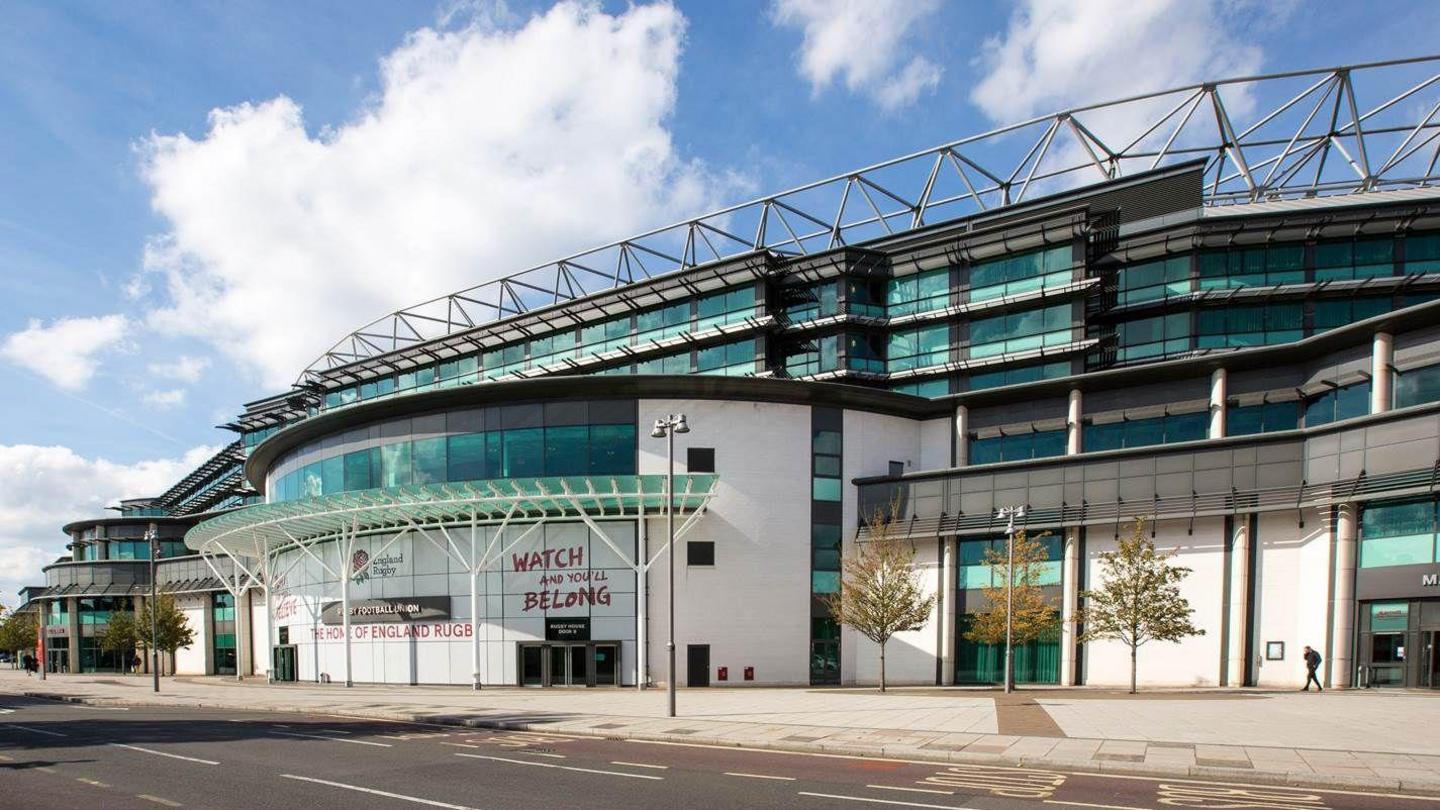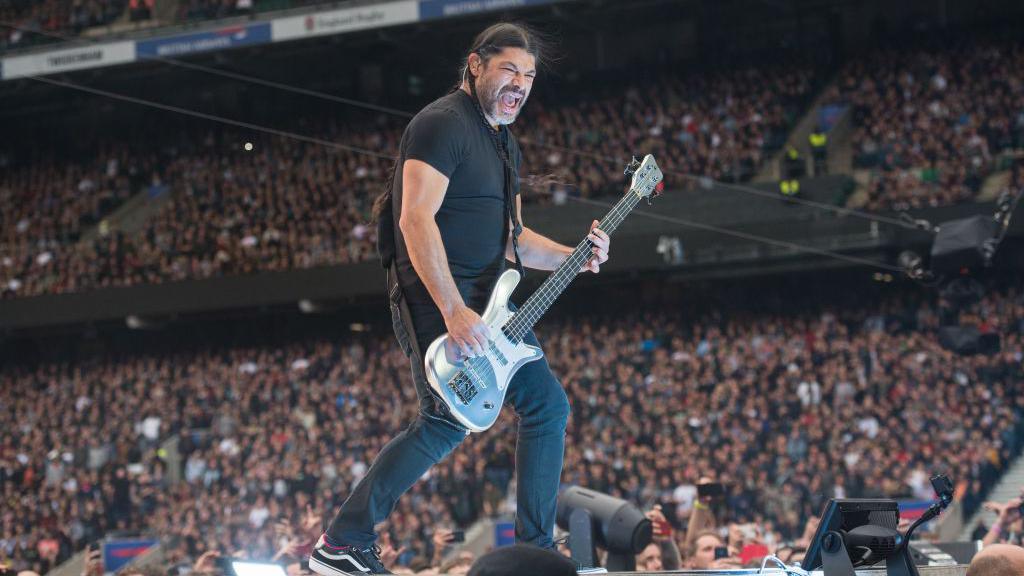Twickenham's bid for more concerts rejected

Twickenham's Allianz Stadium remains limited to three concerts a year
- Published
Twickenham's Allianz Stadium will not be able to host more than three concerts a year, after its application to host more large-scale events was rejected.
Owner Rugby Football Union (RFU) asked for the restrictions to be scrapped in a licence application for the stadium, but Richmond Council only granted it in part, allowing the stadium to extend the hours of smaller events.
Residents who objected to the licence application told the council that events at the stadium prevented them from leaving their homes for hours at a time, and said people urinated in their garden, shouted, fought and vomited in the street.
The RFU said it was "committed to being the best neighbours we can be".
'Out of step'
Restrictions were imposed on the venue after concert-goers at an Eminem gig in 2018 reported a crowd crush and waiting two hours to collect bags.
Solicitor Ewan McGregor, representing the RFU, said that while "this concert presented particular challenges, the concert market, and the world even, has moved on".
He said: "There is an increasing demand for stadium bowl concerts. The licence restriction is out of step with the market and, as a consequence, promoters and artists are turning their back on Twickenham."
Under a separate planning application to the council, the RFU said it wanted to hold 15 major non-sporting events at the stadium every year, and requested an increased capacity of 75,000 people, from 55,000, according to the Local Democracy Reporting Service.
While the number, size and type of events held at the stadium is a planning decision, the RFU submitted a new licence application which included removing the cap on concerts.

The council called for the RFU to "better engage with the local residents"
Resident Eamon Delaney told the licence meeting: "We regularly suffer the indignity of drunken adults urinating on our property, shouting, swearing and sometimes fighting in the streets in full view and earshot of our children.
"When problems arise, the response from the RFU is inadequate. Today, the RFU is a bad neighbour."
The council's licensing committee decided not to lift the cap on the number of major events at the stadium "for the foreseeable future".
A report on the committee's decision called for the RFU to "better engage with the local residents" and consider dispersal methods for large-scale events.
The new licence allows indoor events to end at 01:00 instead of 23:00, with an allowance for 36 events at 01:30 - which mainly applies to graduation ceremonies, weddings and conferences.
The changes also allow for smaller outdoor events, including summer fairs and ice rinks, where alcohol sales and entertainment must end by 22:00 on Sundays to Thursdays, and 23:00 on Fridays and Saturdays.
Responding to the decision, an RFU spokesperson said: "While the granting of this licence is a positive step towards establishing a more modern framework for stadium operations, approval was only granted in part, and we are now reviewing the outcome carefully.
"As always, we remain committed to being the best neighbours we can be – continuing to invest significantly in minimising the impact of major events and actively supporting the local community we are proud to call home."
Listen to the best of BBC Radio London on Sounds and follow BBC London on Facebook, external, X, external and Instagram, external. Send your story ideas to hello.bbclondon@bbc.co.uk, external